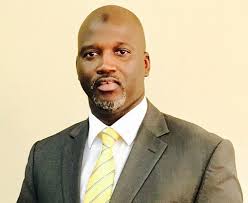By: NyimaSillah
The National Human Rights Commission (NHRC), yesterday, indicated in its released 2022 Activity Report and the State of Human Rights Report that 104 complaints of alleged human rights violations were received in 2022.
The report also summarized the activities of the Commission and the achievements recorded by the country regarding human rights during 2022.
Giving a summary of the report, in the quarterly press briefing held at the Commission’s headquarters in Kotu, Immanuel D. Joof, the Chairman of the NHRC, said “One hundred and four (104) complaints of alleged human rights violations were received in 2022, of which eighty-seven (87) were successfully investigated and resolved.
“Twenty-two (22) of the complaints received, representing 21.15% of the total, were brought against law enforcement, namely the police, Gambia Armed Forces, National Drug Law Enforcement Agency, and the Gambia Immigration Department.”
Outlining the key achievements recorded in 2022, Chairman Joof noted that the Commission established fully functioning two regional offices, conducted the Sir Dawda Kairaba Jawara Moot Court Competition, Monitored and reported on the parliamentary elections from a human rights perspective, investigation into Human Rights violations in the Gambia, the TRRC monitoring of the implementation of the Government White Paper.
Accreditation status with the GANHRI, affiliate status with the African committee of experts on the rights and welfare of the children, studies/research conducted and publications, enhancing the capacity of duty bearers for respect and protection of human rights and forging partnerships for human rights promotion and protection.
Chairman Joof, however, also highlighted the commission’s expectations and focus in 2023 saying the NRCH will focus on the TRRC monitoring, local government elections, the draft constitution, support drafting, reviewing of bills and advocacy, increased engagement with the national assembly standing committee on human rights and constitutional matters and engage with relevant authorities and stakeholders to combat hate speech, discrimination, religious and tribal intolerance and to safeguard the rights of the minorities.
He stated that during the year under review, the NHRC learned valuable lessons that will enhance its effectiveness and efficiency in serving the public, adding this includes prioritization, building partnerships and collaboration, promotion of the indivisibility of human rights, addressing sensitive human rights subjects and expanding human rights services to regions.
Meanwhile, he said despite the successes registered, the NHRC is faced with numerous challenges which are scarce and decreased funding from the Government, insufficient in-house technical capacity on emerging human rights issues, lack of witness protection, inadequate material resources to effectively support the operation, inadequate vehicles and lack of permanent infrastructure for the secretariat and regional offices.




